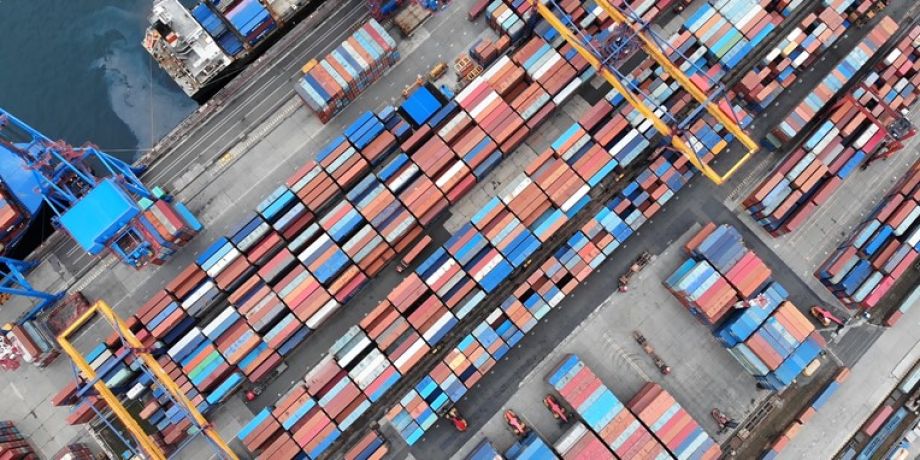
MARSEILLE FOS: MAJOR SEAPORT IN TRANSITION
The Port of Marseille Fos, which has been a “Grand Port Maritime” since 2008, was founded in 1966 and has grown to become France’s second-largest port, thanks in particular to its location on the busy Mediterranean Sea. Between the development of maritime and logistics activities, the modernization of port infrastructures and the environmental issues, we take a closer look at a port in transition that is aiming to improve its attractiveness.
SUSTAINED PORT AND LOGISTICS ACTIVITY
Despite the disruption to the supply chain and the conflict in the Red Sea, sales in 2024 were up by almost 7% compared with 2023. Freight traffic is equivalent over the two years, with more than 70 million tons in 2024. Among the increases, container traffic rose by 9% to 1.45 million TEUs handled last year. This growth is attributed to a rise in transshipment and an increase in import and export flows to destinations such as China, Algeria, Turkey, Reunion and Egypt.
The port of Marseille Fos is also the leading port for hydrocarbons in France and the third largest in Europe, accounting for 60% of its total activity.
Logistics zones are also important, with the development of two main zones: Fos Distriport and La Feuillane, ideally located around the container terminals at Fos-sur-Mer. These two logistics zones specialise in bonded storage and distribution in Europe by land (truck, train or barge). Every year, key players invest in the Port of Marseille Fos to set up their South European hub.
PORT COMMITTED TO DECARBONISATION
The port of Marseille Fos has announced significant investments over the last few years to accelerate its energy transition, with a particular ambition to become the first fully electrified port in France. That’s why a large part of the €99 million of investment announced for 2025 alone is devoted to decarbonizing the port:
- Continued electrification of docks for ships
- Development of renewable energy projects, in particular photovoltaic power plants.
- Investment in infrastructure to support the production of green hydrogen and synthetic fuels.
Two flagship projects are underway to achieve these objectives:
- H4 Marseille Fos project: partnership between Hy2gen and H2V to produce synthetic aviation fuel from green hydrogen. This project aims to reduce CO₂ emissions from the aviation sector.
- DEOS project (Development of Offshore Wind Energy): €550 million investment to develop a floating wind turbine assembly platform in the Mediterranean.
These initiatives testify to the commitment of the Port of Marseille Fos to play an active role in the energy transition, by aligning its port and industrial activities with national and European climate objectives.









